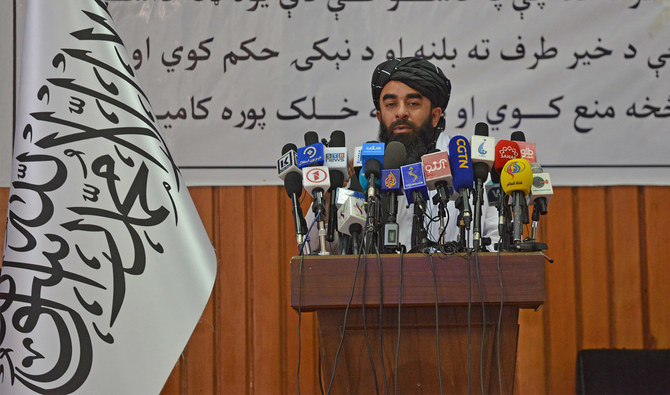PESHAWAR: A spokesperson for Afghanistan’s Taliban government said on Monday Pakistan had carried out airstrikes in the country’s Khost and Paktika provinces early in the morning, killing five women and three children, with no immediate comment available from Pakistan’s military or government.
The airstrikes, the sharpest escalation in already deteriorating ties between the neighbors, came two days after a suicide bomber rammed his explosive-laden truck into a military post in northwest Pakistan, killing seven soldiers. The Pakistan army, defense minister and president vowed retaliation in separate statements.
Pakistani government and security officials say militant attacks have risen in recent months, many of them claimed by the Pakistani Taliban (TTP). Islamabad says most assaults are launched from neighboring Afghan soil, an accusation that has damaged the relationship between Pakistan and the ruling Afghan Taliban, who deny they have allowed Afghan territory to be used by militants.
“Last night at around 3 o’clock in the Barmal district of Paktika province and in Afghan Dubai area of Sepera district of Khost province, Pakistani planes bombed the houses of civilians,” a spokesman for the Islamic Emirate of Afghanistan, Zabihullah Mujahid, wrote on X.
“As a result, 6 people including 3 women and 3 children were martyred and a house destroyed in Paktika, as well as, two women were martyred due to the collapse of a house in Khost province.”
The Afghan government condemned the attacks and called them a “reckless” violation of Afghanistan’s sovereignty.
“The people of Pakistan and the new government should stop some army generals from continuing their wrong policies … and spoiling the relationship between the two neighboring Muslim nations,” the statement added.
“Pakistan should not blame Afghanistan for the lack of control, incompetence and problems in its own territory.”
The spokesman warned that the air strikes could have “bad consequences which will be out of Pakistan’s control.”
In a separate statement on social media platform X, Afghanistan’s defense ministry said its border forces had responded to Pakistan’s airstrikes.
“In response to this aggression, the border forces of the Islamic Emirate of Afghanistan targeted Pakistan’s military centers along the fictitious line with heavy weapons,” the statement said.
“The country’s defense and security forces are ready to respond to any aggressive actions and will defend their territorial integrity in any situation.”
Saturday’s attack on the military post was claimed by a newly formed militant group, Jaish-e-Fursan-e-Muhammad. However, Pakistani security officials believed the group mainly comprises members of the outlawed Tehreek-e-Taliban Pakistan or TTP, which often targets Pakistani soldiers and police.
Pakistan Army’s media wing said security forces conducted an intelligence-based operation in the restive North Waziristan district on Sunday night in which eight “terrorists,” including a high-value commander Sehra Janan, were killed.
“He was involved in orchestrating the terrorist attack on security forces’ post in Mir Ali on 16 March and was highly wanted by the law enforcement agencies,” the Inter-Services Public Relations (ISPR) said in a statement on Monday.
It added that sanitization operations are being conducted in the area to eliminate any other “terrorists.”
The Pakistani Taliban are a separate group but are allies of the Afghanistan Taliban, who seized power in Afghanistan in 2021 as the US and NATO troops were in the final stages of their pullout. The Taliban takeover in Afghanistan has emboldened TTP, Pakistan says, whose top leaders and fighters are hiding in Afghanistan.
“Terrorism is being conducted mostly from Afghanistan against us,” Pakistani defense minister Khawaja Asif told reporters in Pakistan’s eastern city of Sialkot on Sunday, saying militants were operating from sanctuaries in Afghanistan.
“We have also raised this issue with Afghanistan.”
Pakistan’s new government led by Prime Minister Shehbaz Sharif is faced with dealing with fraying ties with three of Pakistan’s four neighbors, India, Iran and Afghanistan.


















